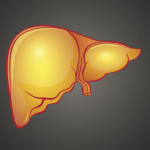When the first HIV test became available in 1985, John McLay took it and tested positive. The result didn’t surprise him; he was sure he had been living with the virus for three years.
“The reason I wanted to get tested early was that I could make different life choices that would help my survival,” says McLay, a 62-year-old long-term survivor living in San Francisco. “If I knew that I was positive, I could adjust what I ate, the amount of exercise I did, stress reduction and getting enough sleep. My positive test spurred me to do all of that.”
McLay remained hopeful and did everything he could to stay healthy until treatment became available. But in 1996, he was diagnosed with AIDS-associated Kaposi sarcoma, which has since left him disabled.
That year, McLay joined a clinical trial for protease inhibitors, seeking to improve his survival. “The medications had a lot of side effects at the time,” he explains. “My body changed. The fat underneath my skin just disappeared, and the fat in good parts on my body, like my butt and legs, also disappeared and went into my chest and torso.”
He says it became difficult to breathe and extremely painful even to sit. The changes were also mentally and emotionally devastating. McLay didn’t want to look in the mirror or go out because he felt extremely self-conscious. “I was embarrassed, angry, humiliated,” he recalls. “I had so many emotions around that, and they weren’t good or hopeful ones.”
Throughout his life, McLay has tried numerous medications to improve his health. He currently takes several prescription medications and vitamins each day.
He also takes testosterone and the human growth hormone Serostim to treat his wasting. The hormones combined with lifting weights, doing cardio, adhering to a low carb diet and getting rest have helped reduce the visceral fat in and around his lungs, liver, heart and other organs and helped him build more muscle.
“If you had told me when I was 29 that I would live to be 62, I wouldn’t have believed you,” McLay says. “Even with my positive attitude, I would have thought that was asking too much of the universe.”
McLay is dedicated full-time to maintaining his health. Not only does he have to take his many meds, but he also has to make sure they are filled and sorted. He self-injects multiple hormones throughout the week while navigating various insurance policies and completing all the paperwork they require.
He also lives with heart disease, diabetes and hypertension, among other conditions. “I don’t think I would have had all of these things if I had not been HIV positive and had not been on all those meds for so long,” he says.
Due to the ongoing coronavirus crisis in the United States, McLay’s life, like that of many other Americans, has changed drastically. But he continues to move forward with gratitude.
“I feel safe,” he says. “I also have this appreciation for all the things that are extraordinary and wonderful about my life. I’m able to help other people with the knowledge and experience that I have of surviving for as long as I have.”
He has also learned to be kinder to himself, which has helped him shelter in place during the pandemic.
If there’s one thing he wants other long-term survivors and those experiencing wasting to know, it’s that this journey doesn’t have to be lonely. “You are not alone,” McLay says. “You are not the only one that this is happening to. There are resources and people who care deeply and want to help.”
As for his future plans, McLay hopes to release a television program titled Out & In Focus—The Art of Aging Positively, which includes one-on-one interviews with gay men aging with HIV about their life experiences.
“I love my life,” McLay says. “Being alive at this point is a real gift. Every day is an incredible gift.







5 Comments
5 Comments